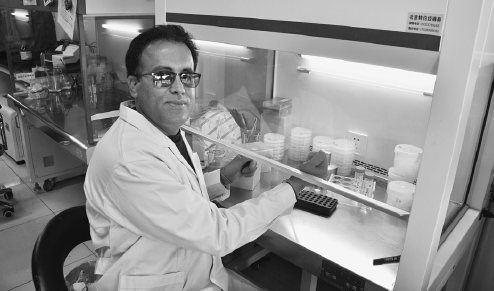A culture of sharing


A Pakistani scientist describes his experience of pursuing his higher studies in China
Joining a short-term research program in China has not only allowed Pakistani agricultural scientist Sayyar Khan to push forward with his academic studies, but also given him a chance to see a country he had heard so much about.
Khan, 41, is an assistant professor at the Institute of Biotechnology and Genetics at the University of Agriculture located in the city of Peshawar in Pakistan. He is now doing a one-year post doctoral fellowship at the Beijing Academy of Agriculture and Forestry Sciences.
The program is sponsored by the Chinese Ministry of Science and Technology, and many young talented scientists who come from collaborating countries, such as Pakistan, are offered opportunities to work in China.
Khan, who arrived in Beijing in November last year, mainly studies the bulb of the lily plant, which is used for both traditional Chinese medicines and ornamental purposes.
His job is to check the microbes in the soil around the roots, and try to isolate the microbes that are beneficial for the plant.
"In future, we may also work on growth-promoting microbes which can be applied to other species, and microbes that can be applied in harsh environments," he says.
Although this is his first visit to China, Khan says he is well-informed of the long friendship between China and Pakistan.
He is impressed by the cooperation in education between China and Pakistan, especially since the inauguration of the Belt and Road Initiative in 2013.
"Many students from my university and my city have visited China and completed their higher education here," he says, adding that he has met with many of them.
"We hear news about China on television and read about it in print media, and we know of the rapid industrialization of China in recent decades."




































